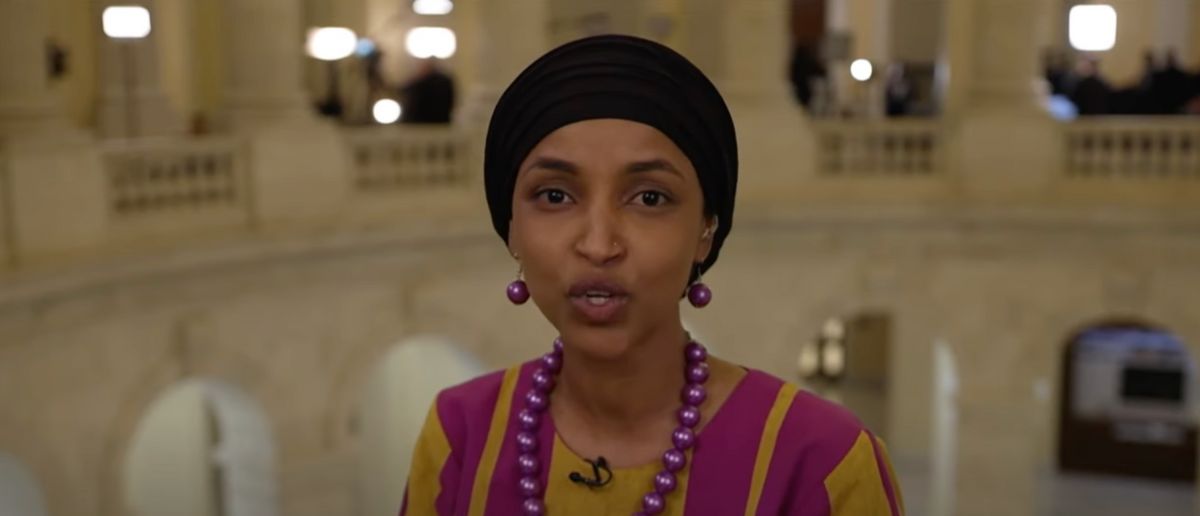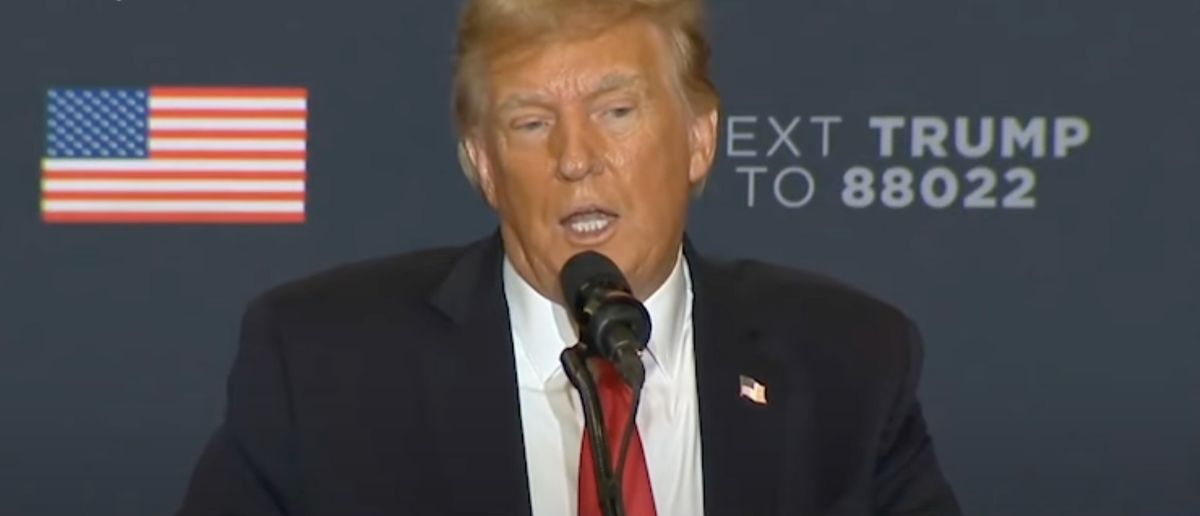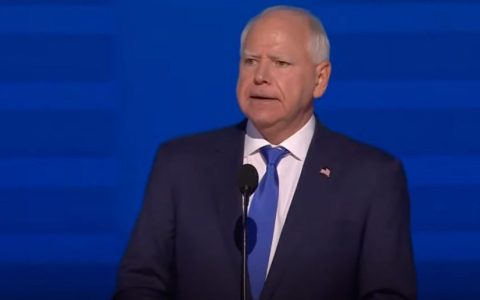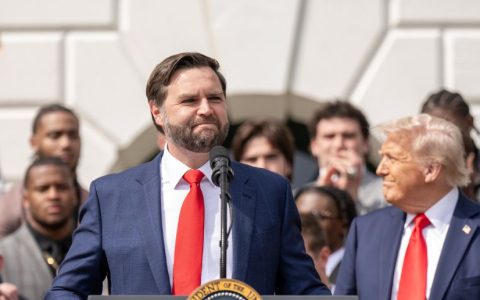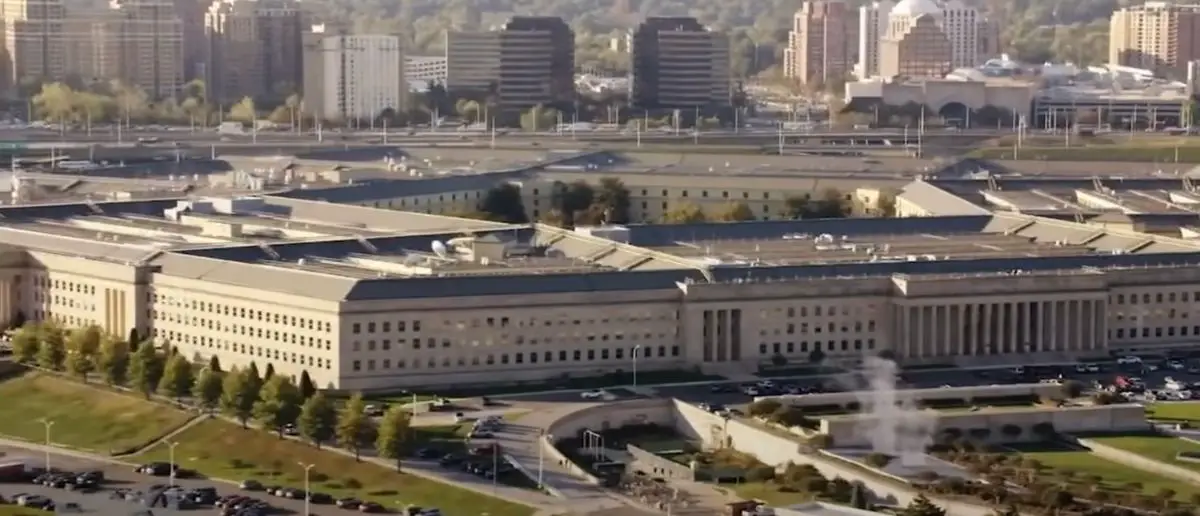
The Trump admin has a problem snowballing. It has to be put to a stop.
That’s why President Trump is losing his patience with the Pentagon being plunged into chaos.
Pentagon Shakeup Leaves Massive Holes In Leadership, Hegseth Under Pressure
In a whirlwind of change at the Pentagon, Defense Secretary Pete Hegseth has reshaped his inner circle, drawing both intrigue and concern. Just 100 days into his tenure, Hegseth’s leadership team has been dramatically reduced to a tight-knit group including his wife, Jennifer, a former Fox News producer, his personal lawyer, Tim Parlatore, and two loyal confidants from his military past. This rapid overhaul, while bold, has left the Pentagon’s lead office grappling with a lack of seasoned expertise, raising questions about its ability to navigate complex challenges.
Hegseth’s decision to dismiss three senior aides and reassign his chief of staff has sent shockwaves through the department. The firings, which included senior adviser Dan Caldwell, deputy chief of staff Darin Selnick, and the deputy secretary’s chief of staff, Colin Carroll, have severed critical communication lines. This shake-up has fueled fears of potential missteps, particularly in high-stakes areas like weapons program timelines, which are vital to President Donald Trump’s ambitious defense agenda.
“It’s a free-for-all,” said one person familiar with the office dynamics, who was granted anonymity to talk candidly about the situation. The comment captures the chaotic atmosphere as Hegseth’s office struggles to manage an influx of visitors and a backlog of delayed memos. Routine actions, once handled swiftly, are now stalled, leaving the Pentagon’s third-floor suite overwhelmed.
The turnover’s speed is unprecedented, even for a department accustomed to political transitions. Hegseth, a first-time government official, now relies heavily on a small circle: his wife, Jennifer, his lawyer, Parlatore, commissioned as a Navy commander, his former platoon sergeant, Eric Geressy, and Col. Ricky Buria, a former junior military adviser. His brother, Phil, a Department of Homeland Security liaison, also maintains a nearby office, adding a familial layer to the leadership structure.
“Everyone has been jockeying for position,” said a second person familiar with the office dynamics, who was granted anonymity like others to discuss a sensitive issue. This internal competition has slowed critical processes, including decisions on President Trump’s Golden Dome missile defense initiative, a cornerstone of his national security vision. The Pentagon’s upcoming budget, expected to hit a record $1 trillion, faces potential delays as the leadership vacuum disrupts major procurement restructuring.
Hegseth’s team has shifted focus to cultivating his public image, producing videos of memo signings and early morning workouts. While these efforts aim to project strength, they’ve sparked concern among current and former defense officials. The emphasis on optics, they argue, risks sidelining less glamorous but essential tasks, potentially undermining the department’s operational efficiency.
“The longer these positions sit vacant, the longer the department will be rudderless and without leaders who can provide cohesive direction,” said Chris Meagher, who served as the Pentagon’s assistant secretary for public affairs in the Biden administration. Meagher’s critique points to the critical role senior staff play in guiding the secretary, preparing for meetings, and managing the department’s sprawling bureaucracy.
Senior aides typically streamline the secretary’s schedule, crafting clear agendas and talking points to maximize efficiency. “They will do lots of pre-meetings and scope all the meetings in such a way that the main events don’t waste the secretary’s time,” said a former defense official who has served in similar roles. Without this support, Hegseth’s ability to lead effectively is at risk.
The purge has extended beyond Hegseth’s immediate office. Deputy Defense Secretary Stephen Feinberg, confirmed by the Senate in mid-March, has also felt the impact. Hegseth’s decision to fire Carroll, Feinberg’s chief of staff, without prior consultation has strained relations between the two offices. Feinberg, still building his team, is expected to bring in talent from Cerberus Capital Management, the firm he founded, to stabilize his operation.
Bryn Woollacott MacDonnell, the Pentagon’s comptroller and chief financial officer, has stepped into the breach as Feinberg’s new chief of staff while continuing her current role. The comptroller’s office, however, remains without a nominated successor, as the White House struggles to identify a suitable candidate. This gap adds to the uncertainty permeating the department.
The upheaval has created a challenging environment for career civilian and military officials. “The uniformed military — from junior enlisted to four-star generals — see right through these clowns, from their backstabbing and their inexperience to their cavalier treatment of highly classified information and their bungling policy rollouts,” said Alex Wagner, the former assistant Air Force secretary for manpower and reserve affairs during the Biden administration. Wagner’s sharp words reveal the frustration among career officials.
“I can’t imagine how I would be able to get anything enduring accomplished alongside the uniformed military if my colleagues saw me and my fellow appointees, including the secretary, as a punchline,” Wagner added. The sentiment points to the difficulty of maintaining morale and productivity amid the turmoil.
Yet, Hegseth’s supporters argue his decisive actions demonstrate a commitment to breaking from entrenched bureaucratic norms, aligning with President Trump’s outsider ethos. By surrounding himself with trusted allies, Hegseth is positioning the Pentagon to execute Trump’s vision without the resistance often encountered from career insiders. The Golden Dome project, for instance, remains a priority, symbolizing Trump’s promise to strengthen America’s defenses.
The Joint Chiefs of Staff are working overtime to mitigate the disruption, according to a former Pentagon official. “They don’t want the department to fail, so they’re working in overdrive,” the official said. Their efforts provide a stabilizing force, ensuring the department doesn’t grind to a halt despite the leadership gaps.
Critics, however, warn that the departures have left “a vast hole” in the Pentagon’s operational capacity. The loss of experienced aides like John Ullyot, a former Pentagon spokesperson who resigned last week, and Joe Kasper, the chief of staff who announced his immediate departure, compounds the challenge. Kasper’s exit, in particular, followed a public rivalry that erupted into open conflict, further destabilizing the office.
Hegseth’s leadership style, while controversial, resonates with Trump’s base, who see it as a rejection of Washington’s status quo. His reliance on a small, loyal circle mirrors Trump’s own approach, prioritizing trust over traditional qualifications. Whether this strategy will yield results or deepen the Pentagon’s challenges remains to be seen.
As the dust settles, the Pentagon faces a critical juncture. Hegseth’s ability to rebuild his team and restore confidence will determine whether his tenure becomes a footnote or a transformative chapter in Trump’s defense legacy. For now, the department navigates uncharted waters, with the nation watching closely.
Stay tuned to the DC Daily Journal.

